Foreign Prayer (2017)
Жанр : история, драма
Время выполнения : 1Ч 32М
Директор : Akhtem Seitablaiev
Писатель : Mykola Rybalka
Краткое содержание
Nazi-occupied Crimea, 1944. A boy named Itzhak turns to Saide Arifova, a local Tatar Muslim woman, for help, explaining that he and a group of other Jewish orphans are hiding from the Nazis. Arifova faces a moral dilemma: should she try to help them or save herself by refusing? Despite the impending danger, she decides to protect the children by hiding them in plain sight, and disguising them as Tatars and adopting them into the local community.
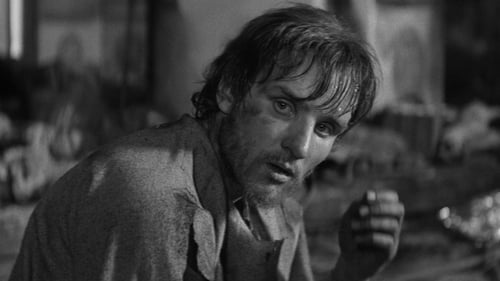
Русь начала XV века. Страну раздирают княжеские междоусобицы. Набеги татар, голод и мор преследуют народ… В эту трагическую эпоху появляется на Руси великий живописец, жизни и творчеству которого посвящен фильм.Сведения о нем скудны и отрывочны. Лишь немногие творения гениального мастера дошли до нас. Авторы фильма стремились воссоздать духовный мир Андрея Рублева.
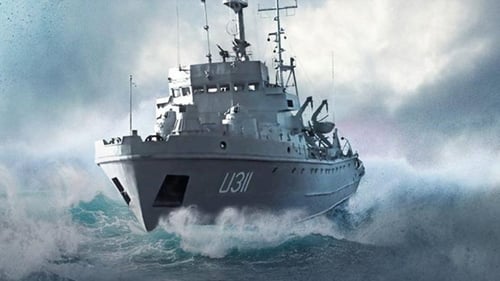
Февраль 2014. Начинается оккупация Крымского полуострова. Минный тральщик «Черкассы» вместе с другими украинскими кораблями заблокирован в озере Донузлав - путь к морю перекрыт затопленными судами российского флота. Это ловушка. Наши корабли начинают сдаваться русским. Кажется, другого выхода просто нет.
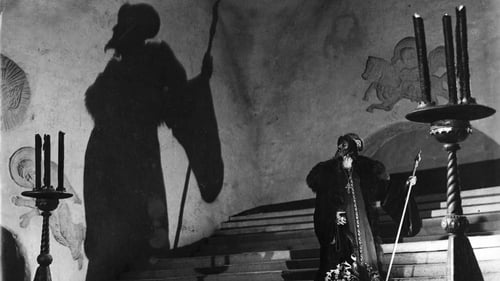
Это фильм о человеке, который в XVI столетии впервые объединил нашу страну и из отдельных разобщенных и своекорыстных княжеств создал единое мощное государство, о государе, впервые возложившем на себя венец Царя Всея Руси, об одной из самых сложных, мощных и противоречивых личностей, - о царе Иоанне Васильевиче, вошедшем в историю под именем Грозный.
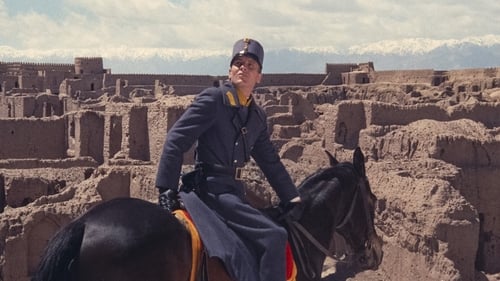
Со своим первым заданием лейтенант Дрого прибывает в отдаленную крепость, окружённую с одной стороны песками, с другой — неприступной горной цепью. Задача гарнизона — отразить возможную атаку грозного противника, затаившегося где-то в пустыне. Некоторые офицеры всё ещё ждут нападения, другие уже просто не верят в то, что это когда-нибудь произойдёт…

17-летние москвички Оля и Саша отправляются в Крым, чтобы познакомиться с Олиным отцом Сергеем. Сергей всю жизнь прожил в маленьком приморском поселке и никогда не видел свою единственную дочь. На пороге его дома Оля пугается предстоящей встречи и просит Сашу «поменяться местами». Саша представляется Олей, то есть дочерью, а Оля выдает себя за ее подружку. Поначалу этот розыгрыш забавляет девчонок, но они не подозревают, что невинная шутка обернётся драмой и перевернет жизнь всех ее участников.
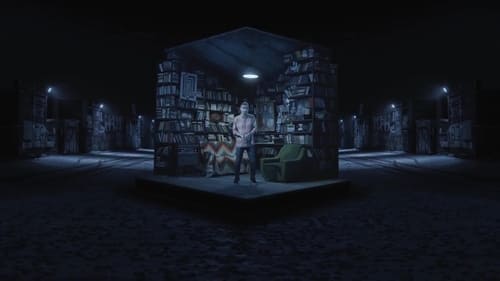
A theatrical documentary about Hrytsko Chubai, a genius of Ukrainian poetry, a connoisseur of literature, art and music and the brightest representative of Lviv underground culture of late 60s early 70s.

Этот фильм — история офицеров, солдат и матросов, которые во время захвата Крыма не изменили своей присяге на верность народу Украины. Продолжая выполнение своих военных обязанностей на земле, море и в воздухе, непосредственные участники рассказывают о вторжении и аннексию украинского Крыма.

A captain in the Czar's army encounters danger and romance while carrying a secret message across 19th-century Russia.

Фильм рассказывает о трагической дате в истории крымскотатарского народа — 18 мая 1944 года — сталинской депортации крымских татар. В центре сюжета фильма — летчик, дважды герой Советского Союза, Аметхан Султан. В мае 44-го года после осовобождения Севастополя Аметхан отправляется в отпуск в родную Алупку. На его глазах 18 мая и начинается депортация крымских татар.

Chain-smoking artists, poets and playwrights were among the colourful array of intellectuals living in the ‘Slovo House’ in 1920s Ukraine. The communist paradise was built under Stalin's approval, but it quickly became a prison. The brutal Soviet regime spied on the inhabitants, destroying their eccentric way of life and sealing their fate. This fascinating film explores the extraordinary story of the building and its residents.

В небольшом южном городке, в парке культуры и отдыха, каждый день массовик-затейник Людмила Пашкова проводит свое коронное мероприятие — конкурс «Где вы, таланты?!». И ни разу никто не спорил с ней по поводу приза. Но вот появляется некто Гудков из Мурманска и, спев песню «Моя морячка», которая тут же становится шлягером, требует себе главный приз за талант…

Документальный фильм о военном преступлении — аннексии Крыма Российской Федерацией.

1970-е годы советской Украины. Политическое удушье на киностудии. Куратор от КГБ дает приказ перемонтировать только что законченный фильм известного режиссера, который освещал события украинской «гражданской войны» с правдивого ракурса. А это противоречило политике Партии. Перемонтаж поручают режиссеру-стажерке, которая только что закончила ВГИК. Девушка понимает, что должна защитить авторское видение и историческую правду. Любовь, политика, опасное задание, друзья и враги — все это ее вызовы.

One day a friend will betray you, and the enemy at the crucial moment will save lives.

The year 2011 marked the 70th anniversary of the deportations of June 14 1941, when 15 425 residents of Latvia (Latvians, Jews, Russians, Poles) were deported to Siberia. Among them there were 3 751 children aged up to 16. During the process men were separated from their families and sent to gulags, where many were sentenced to death, while others were imprisoned in labour camps. The facts of history and dry and few, but many of the victims and their children and grandchildren are still among us. During the summer of 2010, people who were deported to Siberia in 1941 as children joined their own children and a video production crew to travel back to the far North of Russia.

The children who were sent to Siberia in 1941 have not seen their fathers – in their memories they recollect: “My father was arrested, he was sent to Vyatlag camp. He died there in March, 1942. He was not convicted. Father was tried in the autumn of 1942, when he was already dead, Moscow Troika verdict: 10 years in prison and confiscation of property...”The railcar moves along overgrown rails. For 70 years, the twelve participants of the journey have wanted to go to the places from where their fathers did not return. Among the harsh nature the tension on their faces shows.

Документальный

Kharkiv, the 1930s. The heyday of Ukrainian art. Ambitious young poet Vladimir Akimov happily settles in at the new luxury "Slovo" House built specifically for artists. He comes from the provinces and works as a proof-reader in a printing press, and has never even dreamed of living under one roof with prominent Ukrainian writers and artists. He thinks his own poetry is genius, but nobody takes his literary efforts seriously, not to mention the occasional chuckles over his epigone poems. But fate smiles at him. The head of the political intelligence agency suggests that he become the author of a play written earlier. Akimov agrees, signing a non- disclosure note. The poet has no idea what price he will pay for this success. “‘Slovo’ House” is a story about a generation of Ukrainian artists persecuted by the totalitarian system, unfolding against the backdrop of one of the largest genocides of the 20th century: the Holodomor, which caused the death of almost 7 million people.


During the 12th Century a boy is born to a tribal chief. He is named Temujin, which means "blacksmith." Nine years later, his father is murdered by the Tartars After a long struggle, just when Temujin reclaims tribal chief status, the Merkit tribe kidnaps his wife. In order to fight against the Merkits, Temujin has to use his mother as a pawn in exchange for troops from ally tribes. Temujin manages to rescue his wife only to realise that she is pregnant with the enemy's child. Enduring tremendous anguish, Temujin throws himself into battle against the Tartars and slaughters the leader of the intruders. He eventually takes his wife back and accepts her child. Later on, he begins a campaign to unify all Mongolian tribes. By the age of 40, he is bestowed the title "Genghis Khan", which means "oceanic ruler".
















